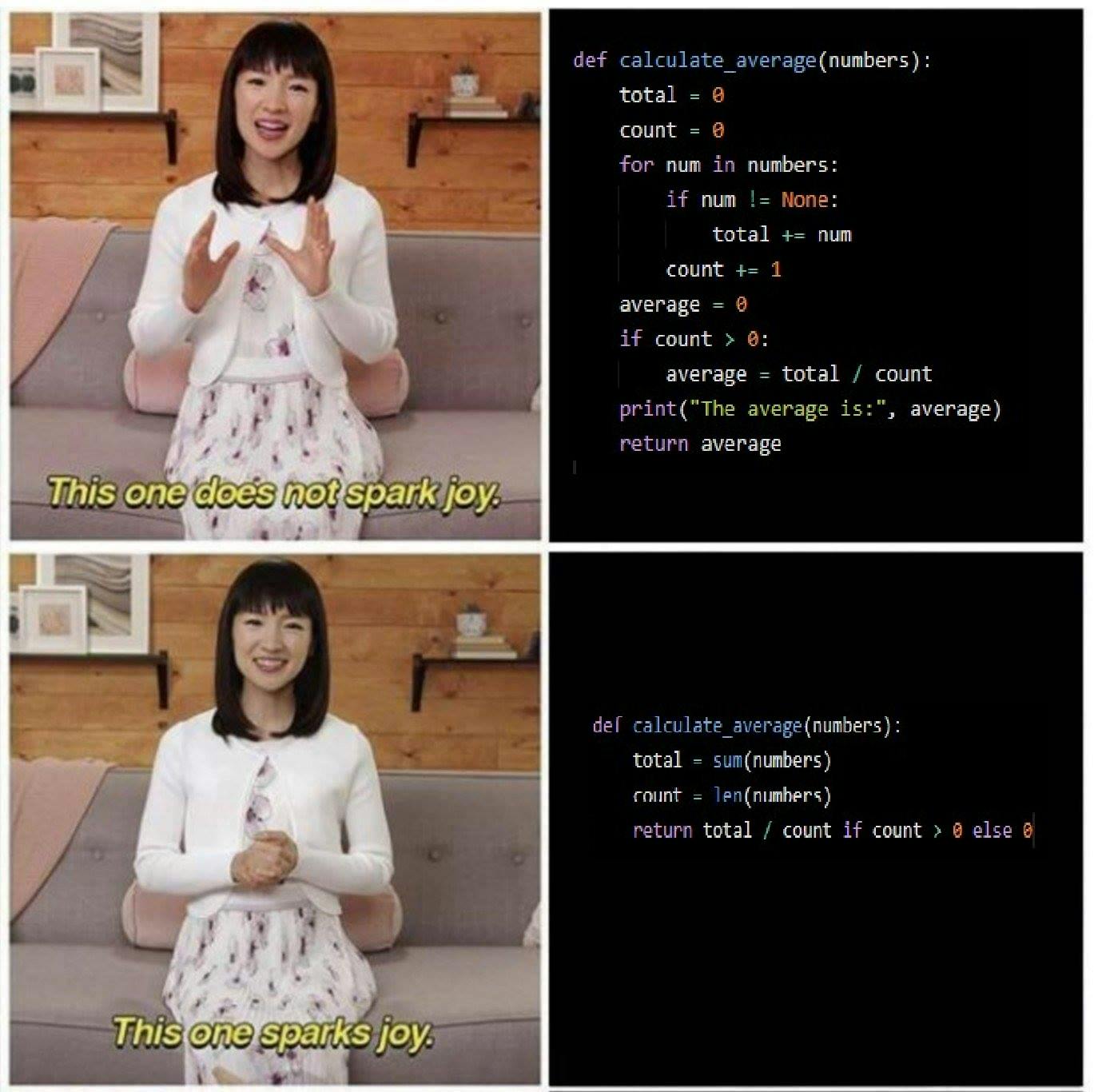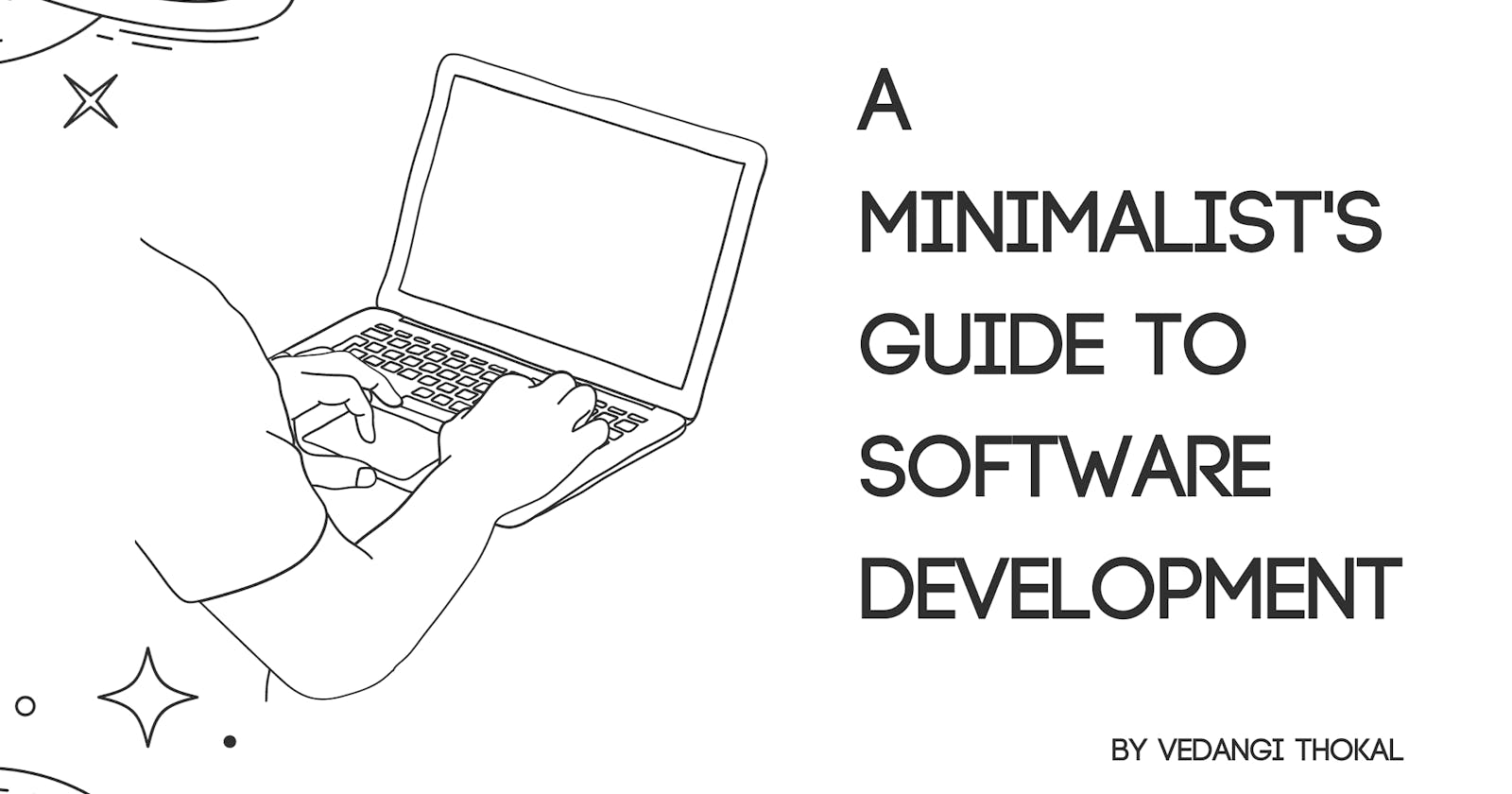
In the world of software development, where complexity can easily get out of hand, we'll explore A Minimalist's Guide to Software Development, discussing how minimalism and simplicity can lead to cleaner and more efficient code.
At its core, minimalism in software development is about achieving more with less. It's about crafting code that is straightforward, concise, and easy to understand. This way you can give your intricate project a streamlined approach and maintain productivity (and a developer's sanity).
Code Readability Matters
Consider the following Python example, which calculates the average of a list of numbers:
def calculate_average(numbers):
total = 0
count = 0
for num in numbers:
total += num
count += 1
return total / count
You can tell what this function does by looking at its name. But can you tell how it does it at a glance? No, right? In this non-minimalist code, the function's purpose is not immediately evident, and it involves unnecessary complexity. But now :
def calculate_average(numbers):
return sum(numbers) / len(numbers)
This version is concise, highly readable, and achieves the same result. We know in a second that we are dividing the sum of a few given elements by the number of elements.
A Real-World Example: Database Query
Imagine you need to retrieve all active users from a database.
import database
def get_active_users():
connection = database.connect()
cursor = connection.cursor()
cursor.execute("SELECT * FROM users WHERE status='active'")
users = []
for row in cursor.fetchall():
users.append(row)
connection.close()
return users
import database
def get_active_users():
with database.connect() as connection:
with connection.cursor() as cursor:
cursor.execute("SELECT * FROM users WHERE status='active'")
return cursor.fetchall()
The latter version not only reduces code length but also handles resource management more elegantly.
Less Is More
You're packing for a vacation, and you're determined to travel light. You toss in your favourite T-shirt, a pair of sneakers, and your very important toothbrush. But then, You start adding five extra pairs of shoes, a collection of hats, and a hairdryer "just in case." Suddenly, you're sitting on your luggage which looks like it's about to burst at the seams, and you're not even sure where you're going.
Now, think of your software project as that luggage. Just as overpacking can lead to a chaotic and unnecessarily heavy suitcase, overloading your code with dependencies is like putting on a jet engine on your shoes. It might look impressive, but it's not practical.

Avoid unnecessary dependencies
Only import dependencies that you actually need to accomplish the task at hand. Extra dependencies increase complexity and build potential bugs.
Follow the DRY principle
Don't 👏 Repeat 👏 Yourself. Extract reusable functions, variables and modules to avoid duplication.
Write self-documenting code
Use expressive names for variables, functions and classes. This reduces the need for extensive comments, keeping your code minimal. Besides, less explaining means more time for coding (or enjoying your vacation).

Other than that
Documentation
While keeping code concise, ensure that it's well-documented to aid understanding and future maintenance. Your code is
Version Control
Utilize version control systems like Git to track code changes, making it easier to manage and collaborate.
It's not about saying less, but saying more with less. So, keep it clear, keep it concise, and let your code speak for itself. Happy coding folks! 🚀👩💻
Let's have a chat!
🎯 Linkedin - https://www.linkedin.com/in/vedangi-thokal-528037249/
🎯 Twitter - https://twitter.com/Vedangitt
